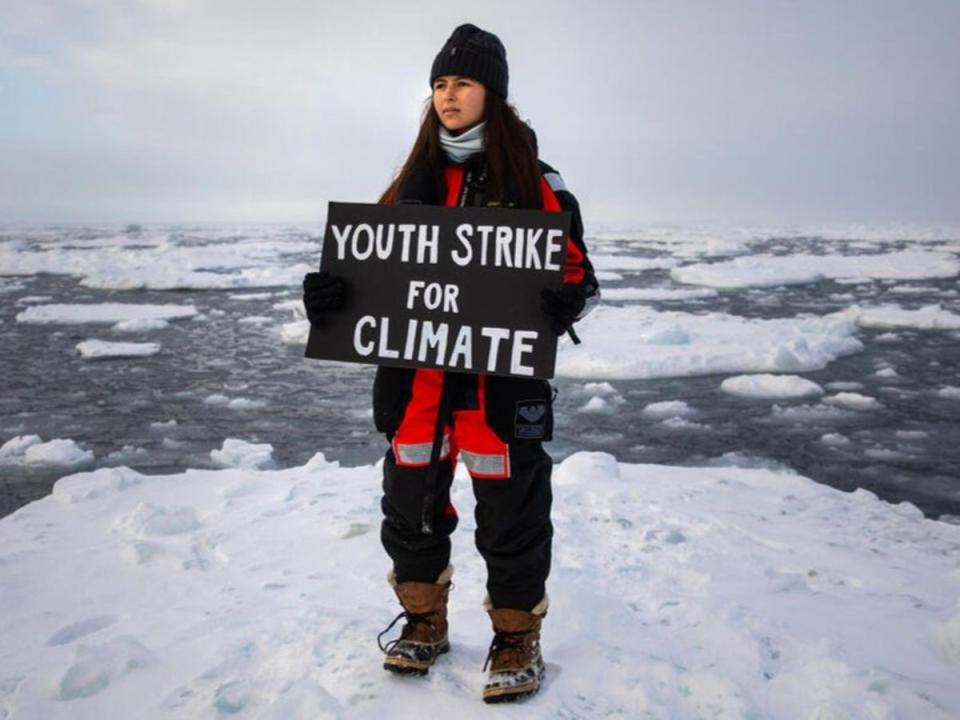Mya-Rose Craig aka ‘Birdgirl’ on breaking down barriers, mental health and getting started birding

One of the first birds that helped Mya-Rose Craig, aka Birdgirl, fall in love with birding was a duck.
The 20-year-old birder and environmental activist says she remembers little of the details (she was three years old at the time) – only the stomach-twitching feeling of excitement.
“I remember very distinctly looking at the duck through the telescope,” she told The Independent from a central London cafe this week. “It’s stuck with me.”
As has that feeling of gleeful excitement at the prospect of seeing a bird, a passion she says she set out to capture in her new book, Birdgirl, which was published this week.
Part memoir, part travelogue, part homage to the bird kingdom, the book follows the British-Bangladeshi ornithologist’s extraordinary childhood and adolescence spent travelling the world looking for birds.
“The chase is part of what makes bird watching really fun, not knowing if you’re going to see something or not, and tracking it down. It makes it really exciting,” she said. “You don’t know if you’re going to succeed.”
Birdgirl’s top tips to get birding |
Don’t think you need to be an expert |
Find some birds, sit for 10-15 minutes and just enjoy them |
Even a local park will do |
There are also lots of bird reserves – even in London |
Google is your friend if you want to find out what you’re looking at |
There are also great apps out there |
It can almost be like a mindfulness exercise, helping you become more aware of your surroundings |
When it comes to tracking down birds, Craig has, for her age, perhaps had unparalleled success.
In 2009, aged just seven, she embarked on a “big year” – a calendar year in which you try to see as many species of bird as possible within a given geographical area. She managed 325 UK species, becoming the only child in the world to complete the challenge.
Ten years later, aged 17, Craig is believed to have become the youngest person to see half of the birds in the world after spotting a Harpy Eagle in the Brazilian Amazon.
And there have been other successes along the way too. In 2020, she travelled to the Arctic with Greenpeace, carrying out what is believed to be the most northerly youth climate strike in history to raise awareness about global heating. And in the same year, she became the youngest person from Britain to receive an honorary doctorate.
She has shared platforms with Greta Thunberg, Malala Yousafzai and Emma Watson, has interviewed the primatologist Dame Jane Goodall and written a book, We Have a Dream, for which she met 30 young indigenous people and people of colour protecting the planet.
She also set up the organisation Black2Nature, which campaigns for equal access to nature and concentrates on visible minority ethnic communities excluded from the countryside. The group runs nature camps and organises race equality in nature conferences.
In 2017, a report by the think tank Policy Exchange found that the environment was the second least diverse profession in the UK, after farming.
It is an issue that remains close to Craig’s heart. The barriers facing visible minority ethnic communities from accessing nature can be physical, such as access to the right footwear and clothing – and to the outdoors itself through public transport – as well as cultural and social, such as a deep-seated concern that they don’t belong in the countryside and could be victims of hate crime, she said.
“It’s slowly chipping away at that,” she said, explaining what needs to be done. There is such a long way to go, she says, but added that she also believes change has started to happen and people are listening.

Another issue closely linked to birdwatching for Craig, and a thread that runs throughout Birdgirl, is that of mental health. In the book, she speaks about her mother’s bipolar disorder, how it impacted her family and how birding became a sort of collective coping mechanism.
“The birds have obviously been a massive tool in terms of adapting, and helping Mum and helping us,” she said. “Originally it probably was subconscious, but we evolved into very consciously using the outdoors as a tool to help ourselves and to help our own mental health.”
Craig said travelling became a sort of “escapism” from the pressures of mental health.
“It helped us massively,” she said. “I definitely don’t think we would have travelled or done as much birding in general, if it hadn’t been for us using it to stick together.”
Now aged 20, Craig has left home to study politics, sociology and anthropology at Cambridge University. Having just finished her first year, she says she doesn’t yet know what she wants to do after she graduates –apart from continuing to birdwatch, “obviously”.
She says she will always be involved in activism in some capacity.
“It would be lovely if it wasn’t still climate change activism in 10 years’ time,” she quipped. “Although maybe that’s a bit optimistic.”

 Yahoo News
Yahoo News 
